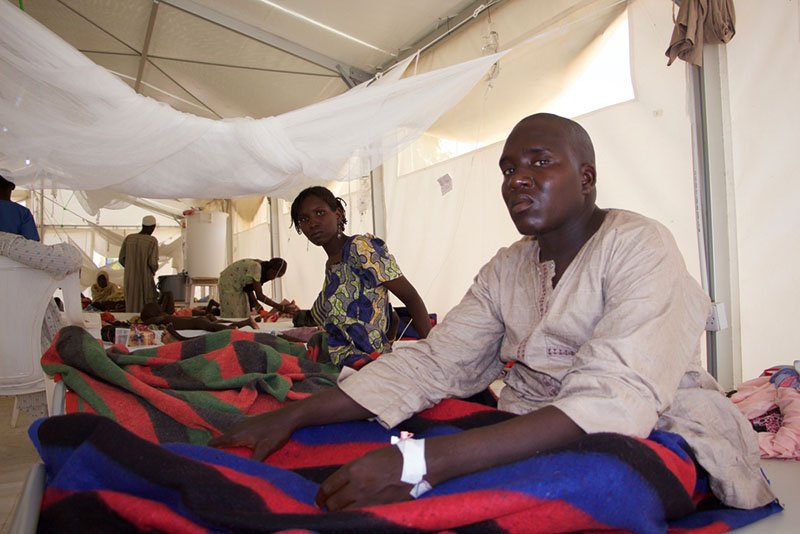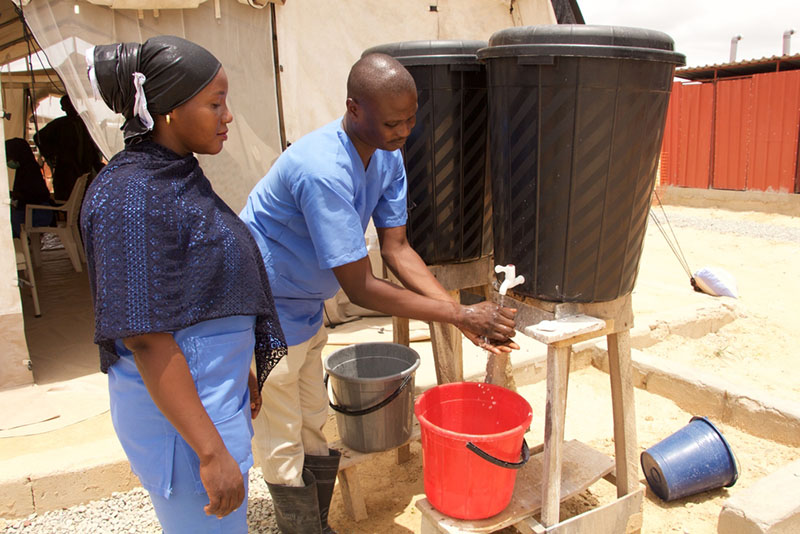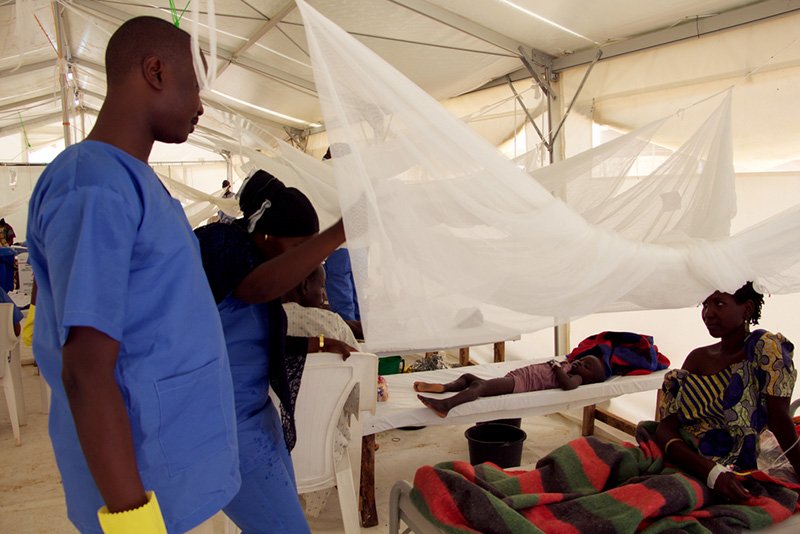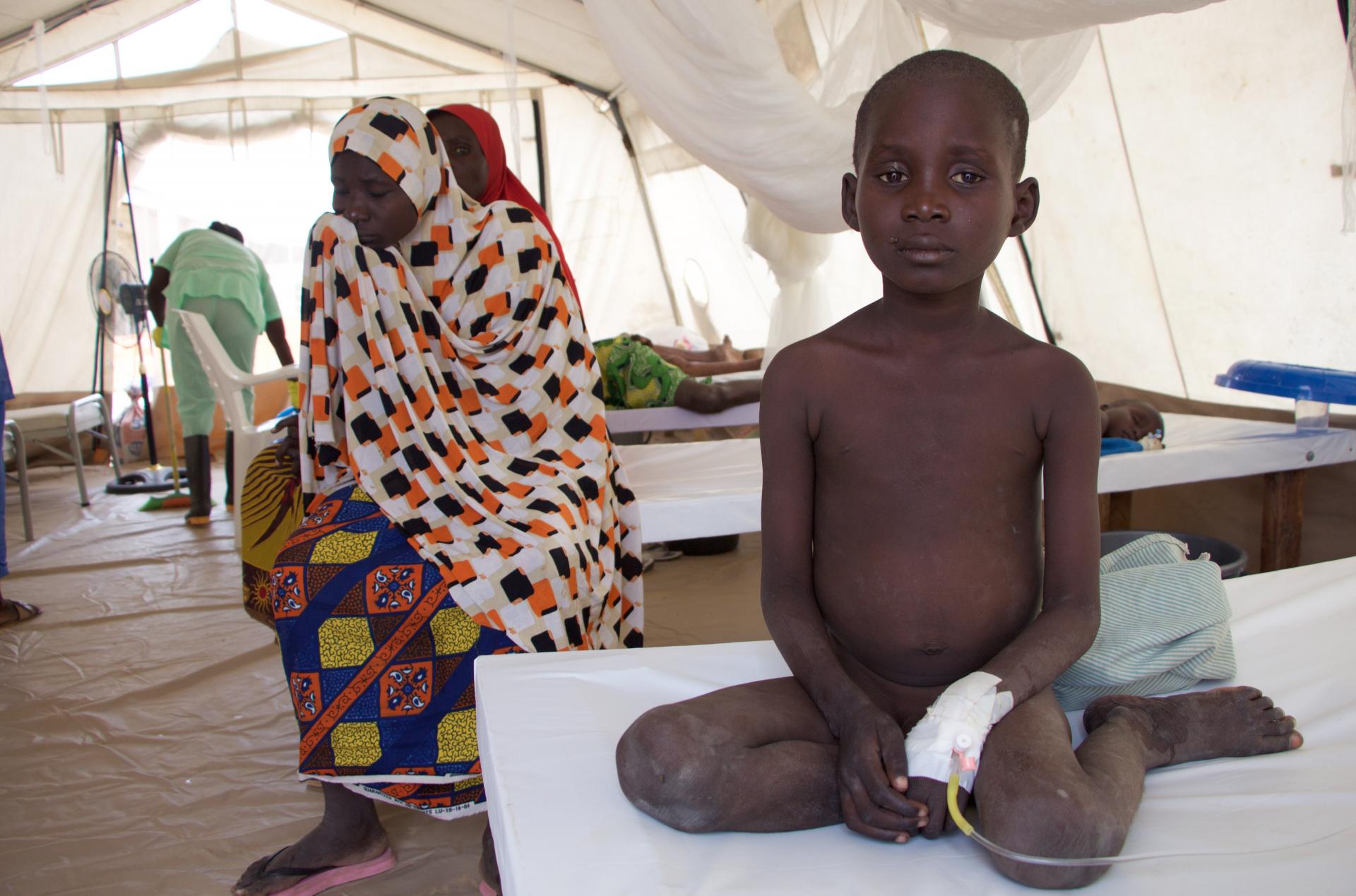As new cases of cholera emerge from Monguno, Dikwa and other parts of Maiduguri, MSF continues to scale up its response in Borno state, in Nigeria.
Since the start of the outbreak, a total of 2627 cholera cases with 48 deaths have been reported by the Borno State Ministry of Health.
The state capital of Maiduguri alone has witnessed 1425 cases, while 600 cases in Dikwa and 602 cases in Monguno have so far been reported.
“Early diagnosis and treatment is vital to tackling cholera outbreaks,” says Anna Cillers, MSF medical coordinator. “As cases increased in Maiduguri, we rapidly added more beds to our cholera treatment centre in Dala, where we now have 100 beds.”

Since 16 August, 491 patients were admitted and 475 discharged in Dala. MSF has now constructed near Muna garage camp located at the outskirts of Maiduguri, another cholera treatment centre with a 50 bed capacity which can be increased to 100 in the coming days, if required.
Muna Garage camp hosts about 20,000 people who have been displaced by the ongoing conflict between the Nigerian armed forces and Boko Haram.
But the outbreak has now begun to spread throughout other camps in the surrounding area and inside the city.
Inside Muna Garage camp, MSF operates an oral rehydration point where patients can obtain sugar and salt solution to help them to overcome severe dehydration.

Patients arriving here in critical condition are taken directly in our ambulances to the cholera treatment centres.
As authorities and humanitarian actors tackle the outbreak in Maiduguri, numbers of cholera cases have been increasing in Monguno and Dikwa, towns to the east of the capital.
Monguno is home to about 200,000 people, two-thirds of whom are people who have fled other parts of the state and now live in official and unofficial camps.
Dikwa, amilitary-controlledd enclave is home to approximately 120,000 people, out of which 100,000 are internally displaced people.
“In Monguno, we adapted our existing medical facility to isolate patients with suspected cholera, and are currently operating a 110-bed cholera treatment centre,” notes Dr. Félix Kouassi, MSF medical coordinator.

“We are worried that the number of beds currently planned may not be enough as cases continue to rise in the town.”
MSF is closely coordinating its efforts with the Borno Ministry of Health, the World Health Organisation (WHO) and other humanitarian organisations in the prevention and treatment of cholera, including providing training for their health workers.
“Our facilities operate 24 hours every day, and are free of charge. People with symptoms of cholera – acute watery diarrhoea or three or more loose stools per day, and dehydration - should seek treatment immediately, said Dr. Félix Kouassi, MSF medical coordinator.
“We remain alert and through our community health workers continue to monitor the spread of the outbreak, and respond to it across Borno state.”
Besides Borno, MSF is currently responding to cholera outbreaks in eastern Chad near the Sudanese border, in multiple locations in the Democratic Republic of Congo and throughout Yemen.
MSF provides nutrition, primary and secondary healthcare, medical aid in disease outbreaks, and operates across 11 locations in Borno State.
Find out more about MSF's work in Nigeria.
